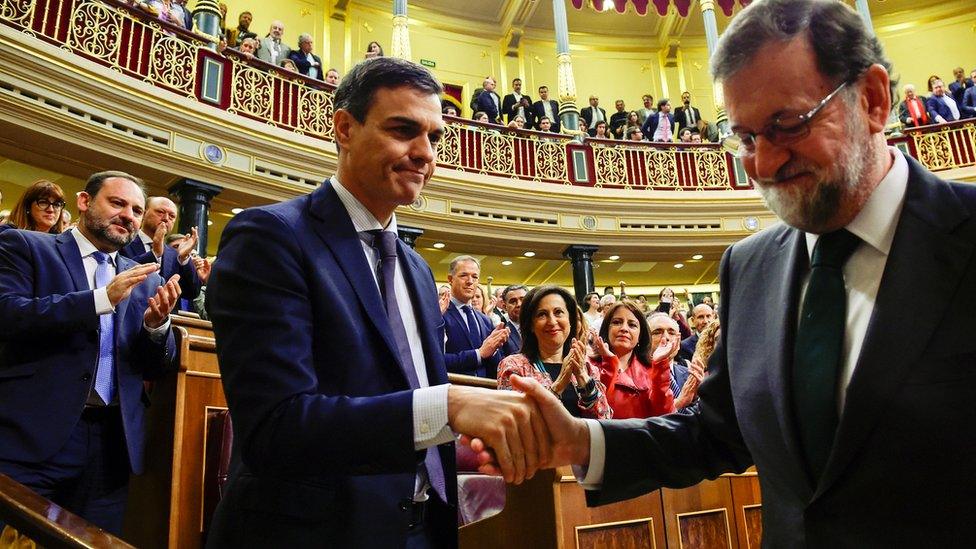Spain's king swears in Sanchez cabinet with majority of women
- Published
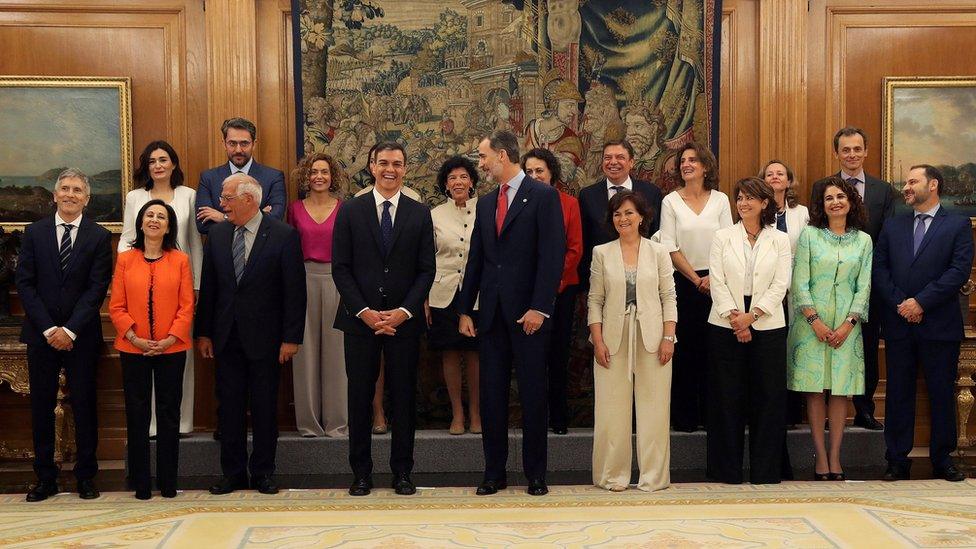
Women outnumber men in Mr Sánchez's team by almost two to one
Spain's King Felipe VI has sworn in a new Socialist government with a record number of 11 women in 17 cabinet posts.
Prime Minister Pedro Sánchez said his new team "shared the same vision of a progressive society that was both modernising and pro-European".
The cabinet is in marked contrast to the male-dominated executives of centre-right ex-PM Mariano Rajoy, who was ousted last week.
As a minority government, it will rely on other parties to enact legislation.
Including the prime minister, the 18-strong government is 61.1% female - the highest proportion in the country's history. Only a handful of countries currently have governments where at least 50% of ministers are women. They include France, Sweden and Canada.
Women have been given some of the biggest jobs in the new Spanish cabinet, including the defence, economy, finance and education portfolios.
Separately, an ex-astronaut has been given the role of science minister.
Mr Sánchez, 46, whose party commands just 84 seats in the 350-seat parliament, came to power when Mr Rajoy lost his job in the wake of a massive corruption scandal.
The new prime minister, who says he is a feminist, said his government marked a watershed moment in Spanish society.
Who's who in the Sánchez government?
His mix of party colleagues and experienced figures from outside politics is being described in Spain as a "feminist cabinet".
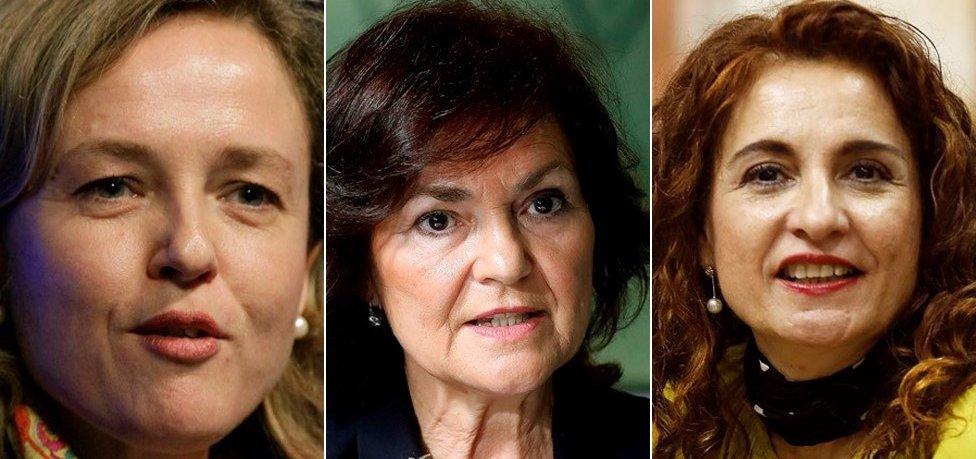
Three of the key figures in the new government are Economy Minister Nadia Calviño (L), Deputy PM Carmen Calvo and Finance Minister María Jesús Montero
In a televised statement on Wednesday evening he spoke of Europe as "our new homeland" and said he saw his cabinet as a faithful reflection of a change in Spain that had emerged on 8 March through a feminist movement. An estimated five million women across the country staged a "feminist strike" on that day against wage inequality and gender violence.
One of the biggest jobs has gone to Carmen Calvo, a Socialist who will become deputy prime minister and take charge of a reinstated equality ministry. Some of the other new ministers are:
María Jesús Montero, a former Andalusia budget minister, will be finance minister
Nadia Calviño, the chief of budget at the EU Commission, will be economy minister
Dolores Delgado, a prosecutor specialising in anti-terrorism, will be justice minister
Margarita Robles, a close aide to the prime minister, gets the defence ministry
Isabel Celáa, a Socialist with long-standing experience in education becomes education minister
Josep Borrell, the former European Parliament president, will be foreign minister
Fernando Grande Marlaska, an openly gay magistrate and former high-court judge who took on cases against Basque separatist group Eta, becomes interior minister
Màxim Huerta, a journalist and award-winning novelist whose last book was published two months ago, becomes culture and sports minister
Allow X content?
This article contains content provided by X. We ask for your permission before anything is loaded, as they may be using cookies and other technologies. You may want to read X’s cookie policy, external and privacy policy, external before accepting. To view this content choose ‘accept and continue’.
In a tweet, the new culture minister paid tribute to his "teacher", the late writer Ana María Matute, with the words: "Culture makes us more free and more happy."
As the ministers were sworn in by the king on Thursday, they took their oaths on the constitution rather than on the bible or crucifix, following the example of Mr Sánchez, who became the first prime minister to forego religious symbols during his swearing-in on Saturday.
New PM looks beyond party for talent
By James Badcock, Madrid
Pedro Sánchez promised his government would be "Socialist and have gender parity". In fact, the government is not entirely Socialist because of its strong technocratic core, and women are commanding a majority.
Given that Mr Sánchez has promised to call elections in less than two years and that he has inherited the outgoing government's budget for 2018, he is looking for a formula that will give him victory at the polls. He may have only 84 seats and will struggle to pass reforms, but he hopes to at least dangle enticing plans before Spanish voters.
He has made a point of sourcing talent from outside his party as well as within. The women in his cabinet include a climate change treaty negotiator, a top Eurocrat and Spain's top anti-terror prosecutor.
Who's the astronaut?
One of the other stand-out names was ex-astronaut Pedro Duque, 55, who last went to space in 2003 as part of an International Space Station (ISS) mission.
An aeronautical engineer with three children, he was selected by the European Space Agency's astronaut corps in 1992 and travelled to space for the first time in 1998, when he joined Nasa's STS-95 mission from Cape Canaveral. Mr Duque served as a mission specialist aboard the Space Shuttle Discovery on the nine-day mission.
In 2003, he took part in the 10-day Cervantes ISS mission, external as a flight engineer on the Russian Soyuz-TMA.

Pedro Duque took part in a 2003 mission to the ISS
Conservative Popular Party leader Mariano Rajoy, who took office in 2011, lost his job as prime minister last week after losing a no-confidence motion in parliament.
On Wednesday, Mr Rajoy, 63, said he planned to leave the political scene, saying "there are other things to do in life than dedicate oneself to politics".
He added: "I had an enormously intense political life and I think it makes no sense to stay longer here."
- Published12 December 2022
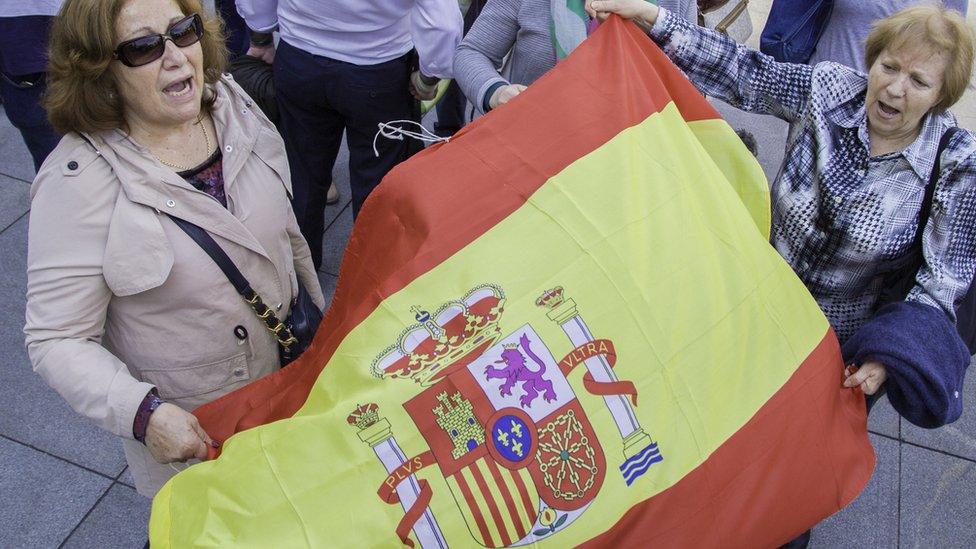
- Published1 June 2018
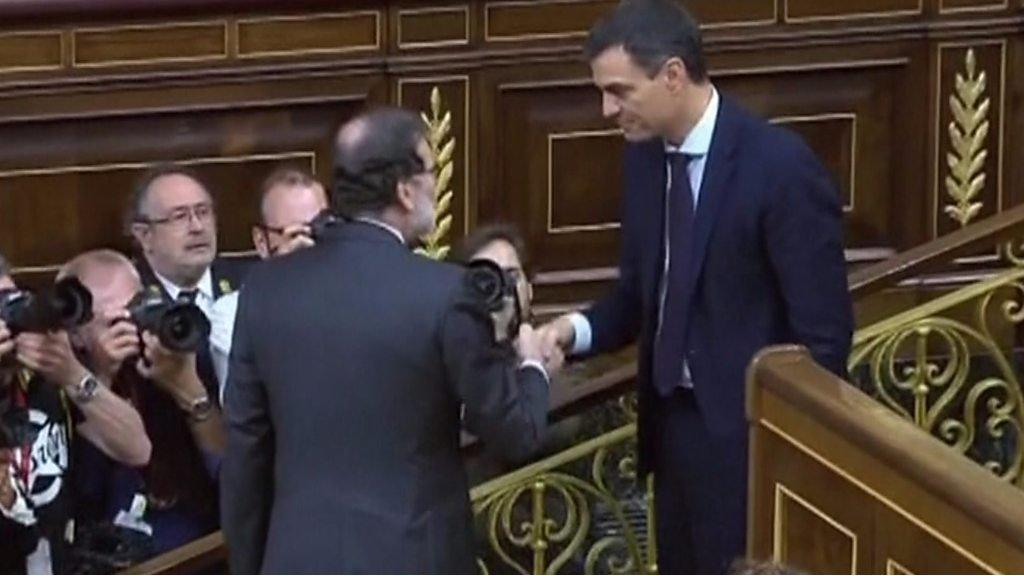
- Published24 May 2018
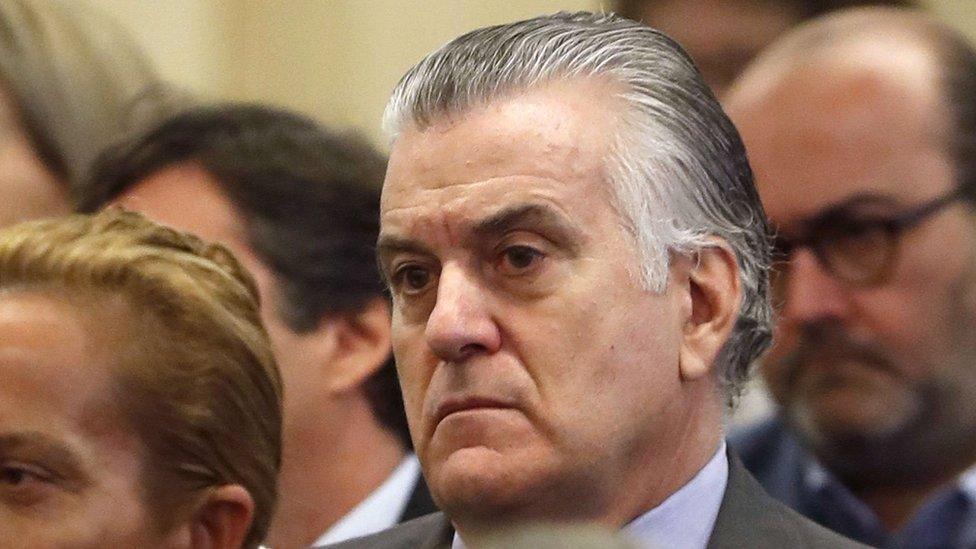
- Published1 June 2018
